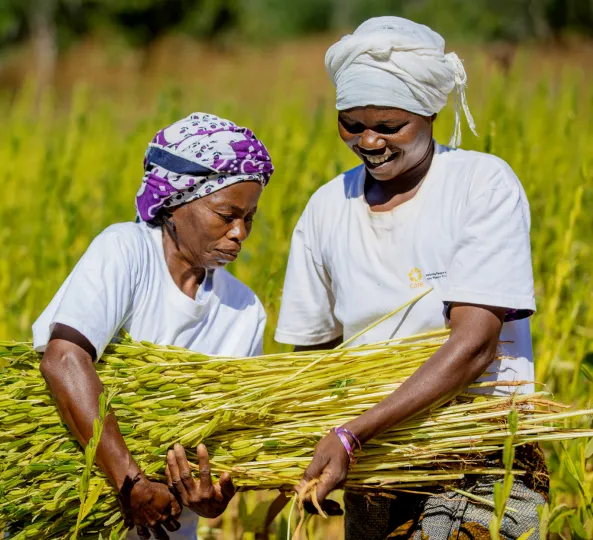
Nachingwea, a district in the uniquely biodiverse Ruvuma landscape, is one of Tanzania’s poorest regions. Its communities rely largely on subsistence farming and are increasingly subject to the impacts of climate change, such as erratic rainfall resulting in droughts and floods. Women are especially vulnerable to these events due to the gender roles and socioeconomic marginalization that reduce their access to information, resources, and decision-making power— and thus, their ability to contribute to climate change resilience. This brief presents key impacts and lessons drawn from various monitoring, evaluation, and learning methods implemented through the project. After a mixed-methods baseline quantitative household survey of 30 clusters randomly selected from 126 villages, including all six project villages, an independent endline survey evaluated households from three project villages regarding changes in natural resource management agricultural practices, and their well-being, among other things.
In Fiscal Year 2024 (FY2024), Feed the Future Sugu Yiriwa directly reached 146,156 market actors (55.17% women). FtF Sugu Yiriwa contributed to the increased access of 25,763 small-scale farmers and market actors (52% women) to productive economic resources. Read More
Women’s Voice and Leadership in public life and decision-making is an essential component of CARE’s Gender Equality Impact Area Strategy and a priority area under CARE’s 2030 vision. This capacity statement outlines CARE's approach to increasing Women's Voice, and strengthening Women's leadership through standalone and integrated programming. Read More
A storybook capturing the transformative impact of Hamzari on the lives of its participants. Read More